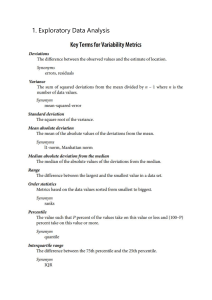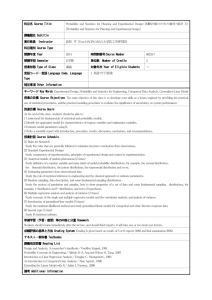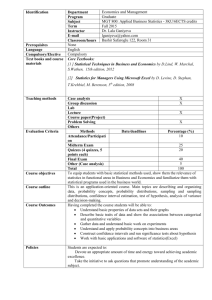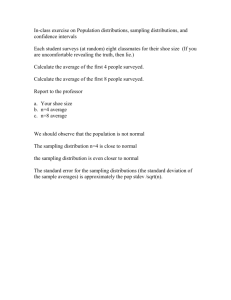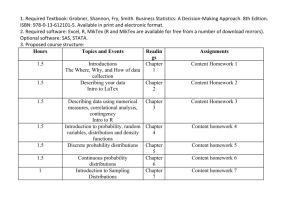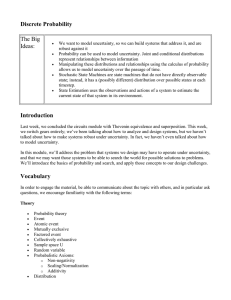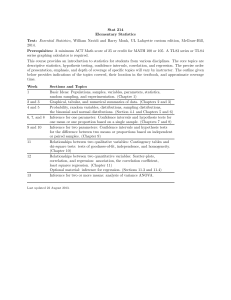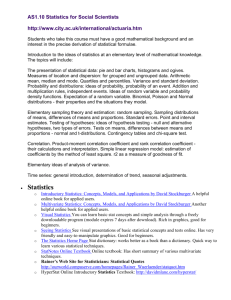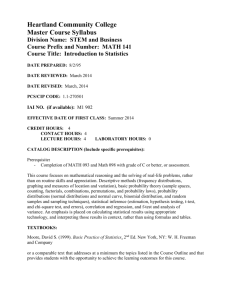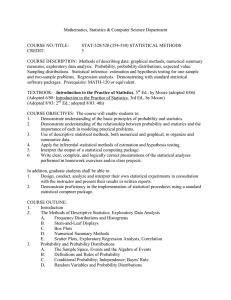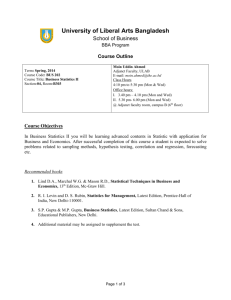UEE1207 Traffic and Transportation Systems, Probability and
advertisement
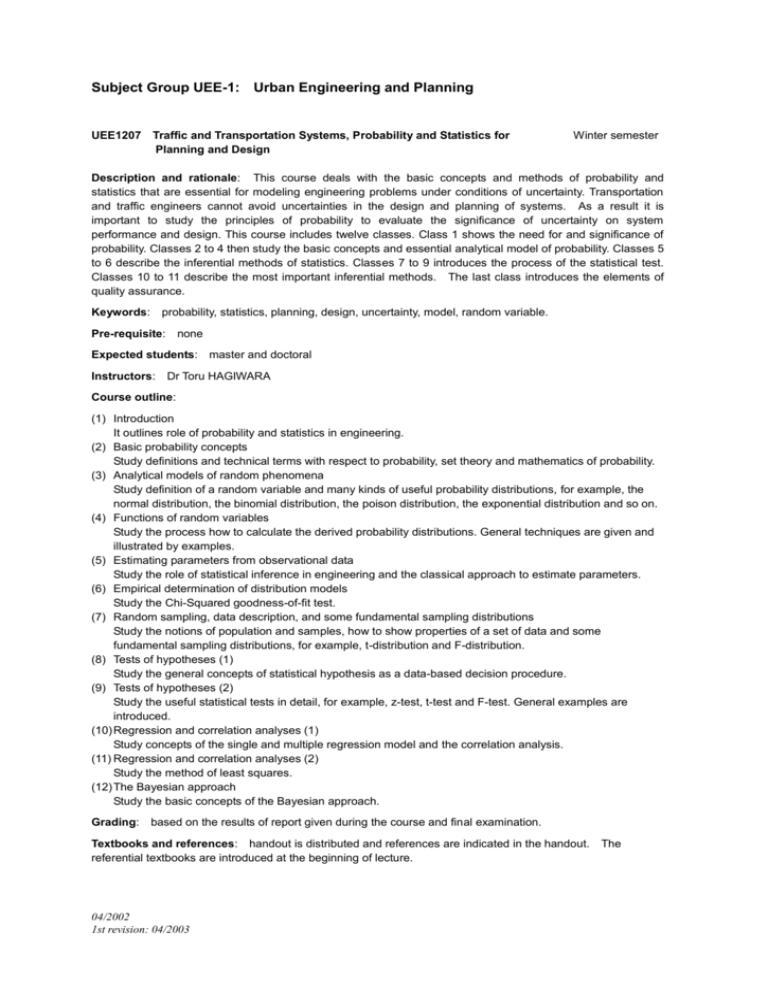
Subject Group UEE-1: Urban Engineering and Planning UEE1207 Traffic and Transportation Systems, Probability and Statistics for Planning and Design Winter semester Description and rationale: This course deals with the basic concepts and methods of probability and statistics that are essential for modeling engineering problems under conditions of uncertainty. Transportation and traffic engineers cannot avoid uncertainties in the design and planning of systems. As a result it is important to study the principles of probability to evaluate the significance of uncertainty on system performance and design. This course includes twelve classes. Class 1 shows the need for and significance of probability. Classes 2 to 4 then study the basic concepts and essential analytical model of probability. Classes 5 to 6 describe the inferential methods of statistics. Classes 7 to 9 introduces the process of the statistical test. Classes 10 to 11 describe the most important inferential methods. The last class introduces the elements of quality assurance. Keywords: probability, statistics, planning, design, uncertainty, model, random variable. Pre-requisite: none Expected students: master and doctoral Instructors: Dr Toru HAGIWARA Course outline: (1) Introduction It outlines role of probability and statistics in engineering. (2) Basic probability concepts Study definitions and technical terms with respect to probability, set theory and mathematics of probability. (3) Analytical models of random phenomena Study definition of a random variable and many kinds of useful probability distributions, for example, the normal distribution, the binomial distribution, the poison distribution, the exponential distribution and so on. (4) Functions of random variables Study the process how to calculate the derived probability distributions. General techniques are given and illustrated by examples. (5) Estimating parameters from observational data Study the role of statistical inference in engineering and the classical approach to estimate parameters. (6) Empirical determination of distribution models Study the Chi-Squared goodness-of-fit test. (7) Random sampling, data description, and some fundamental sampling distributions Study the notions of population and samples, how to show properties of a set of data and some fundamental sampling distributions, for example, t-distribution and F-distribution. (8) Tests of hypotheses (1) Study the general concepts of statistical hypothesis as a data-based decision procedure. (9) Tests of hypotheses (2) Study the useful statistical tests in detail, for example, z-test, t-test and F-test. General examples are introduced. (10) Regression and correlation analyses (1) Study concepts of the single and multiple regression model and the correlation analysis. (11) Regression and correlation analyses (2) Study the method of least squares. (12) The Bayesian approach Study the basic concepts of the Bayesian approach. Grading: based on the results of report given during the course and final examination. Textbooks and references: handout is distributed and references are indicated in the handout. referential textbooks are introduced at the beginning of lecture. 04/2002 1st revision: 04/2003 The
